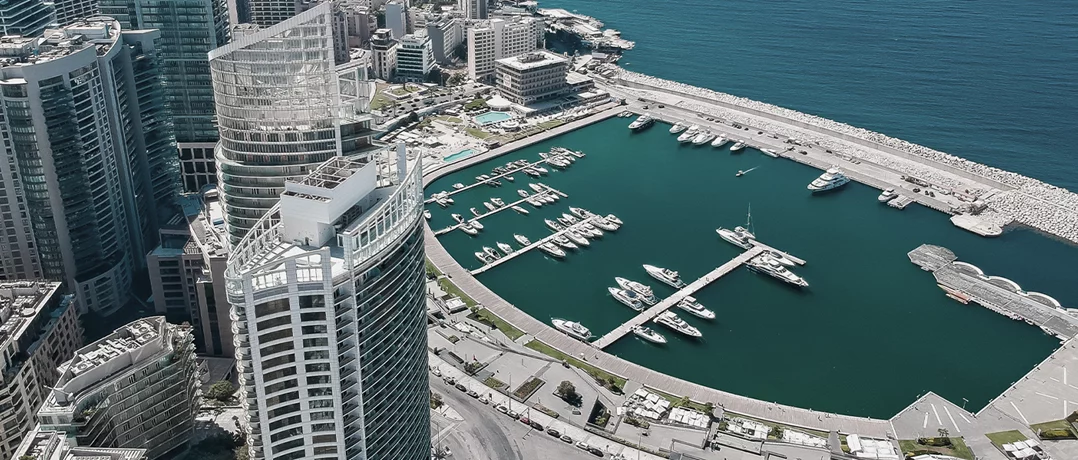Rising conflict is driving families to seek safety by buying homes in traditionally Christian areas like Achrafieh and Faqra, reshaping Lebanon’s real estate map.
Flight to the “soft zone”: When fear redraws Lebanon’s real estate map
Flight to the “soft zone”: When fear redraws Lebanon’s real estate map


In Lebanon, real estate has long reflected social belonging and financial aspiration. But in recent months, it has started to mirror fear. Under the threat of escalating conflict, families from the southern suburbs of Beirut and southern Lebanon, many of them Shiite, are seeking refuge in districts once seen as out of reach: Achrafieh, Saifi, Jounieh, and Faqra.
These traditionally Christian or mixed neighborhoods, known for their calm and prestige, are now witnessing an unusual wave of demand. The reason isn’t luxury it’s safety.
As airstrikes threaten and drones hum overhead, a new real estate trend is taking shape: buying as a form of escape. Apartments once coveted for their view or location are now valued for being outside “danger zones.”
“Lately, many buyers are coming through Shiite brokers,” says a real estate agent in Achrafieh who requested anonymity. “It’s not our usual clientele, but I keep hearing that units listed with us have been sold to families from the South.”
The transactions are discreet, sometimes coded. Yet the pattern is unmistakable and deeply symbolic. In a country where geography and identity have long overlapped, real estate is becoming a new form of migration: a silent search for “residential security.”
Selling fear, buying refuge
In Achrafieh, prices for quality apartments range from $2,000 to $4,000 per square meter, depending on age and view. In mountain areas such as Faqra or Mzaar, where temperatures are cooler and sirens distant, prices remain high despite the national crisis. For sellers, often long-time Christian residents, the decision to move is pragmatic.
“We’re not waiting for the bomb to fall,” says a Faqra homeowner who recently sold his chalet. “We’re selling now, while our property still has value.”
Liquidity needs, emigration, or simple fatigue with uncertainty are driving many owners to cash out. Buyers, on the other hand, are less concerned about returns, they are looking for shelter.
“Buying has become a psychological shield,” explains an agent. “People are paying for peace of mind, not square meters.”
Why Achrafieh and Faqra?
Achrafieh, Beirut’s historic Christian heart, has long symbolized elegance and safety. It’s a place where life still feels normal, with cafés open, children walking to school, and electricity relatively stable.
Faqra, perched high above Keserwan, represents a different kind of refuge: isolation. Its gated compounds, pine forests, and cool climate make it ideal for those seeking to escape both war and chaos.
These areas, once defined by status and lifestyle, are now defined by distance from danger. And while demand from new buyers rises, the number of available properties remains limited keeping prices resilient despite the broader economic collapse.
New buyers, old fears
This internal migration is reshaping not just property prices but also neighborhood identities. Christian residents, weary and uncertain, often sell quickly, sometimes below market value. Shiite buyers, in turn, bring cash or offshore dollars, seeking what they call a “safe zone” for their families.
The shift has revived unease among some residents. “It’s not about religion,” one Achrafieh homeowner insists, “it’s about change. We feel our environment transforming the noise, the habits, the faces.”
Behind the polite language lies a deeper anxiety: the slow erosion of traditional enclaves and the fear that Lebanon’s invisible frontlines are being redrawn once again, not by militias this time but by money.
The three layers of the crisis
Economists point to three distinct effects of this new wave: Emotional security: Property purchases have become coping mechanisms. Owning a “safe” home brings psychological comfort in a country that feels perpetually unstable.
Price stabilization: So-called “refuge zones” like Achrafieh, Saifi, and Faqra are holding or even gaining value while other areas collapse.
Social tension: The changing profile of buyers is stirring discomfort among long-time residents who feel displaced or “sold out” of their own neighborhoods.
When real estate becomes a refuge
While the phenomenon remains limited in scale, it reveals a profound truth: Lebanon’s real estate market is now reacting to conflict, not economics.
“When buying a home becomes a flight rather than a plan, it means the crisis has already entered the walls,” warns a Beirut developer.
The notion of “property as sanctuary” is not new, Lebanon’s civil war produced similar patterns of internal migration. But this time, the movement is quieter, less visible, and driven by both fear and pragmatism.
For many Christian homeowners, refusing to sell feels like a gamble. Some hold out, hoping for a “new balance.” Others, tired of uncertainty, choose to leave while they still can.
What’s unfolding is more than a real estate adjustment; it’s a geography of fear.
Each sale tells a story of departure and arrival, of boundaries shifting in silence.
Achrafieh and Faqra are no longer merely prestigious addresses, they are buffer zones in a country where geography has once again become destiny.
Whether this transformation proves temporary or lasting remains uncertain. But one thing is clear: in today’s Lebanon, the safest investment isn’t just financial, it’s existential.

